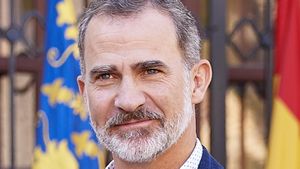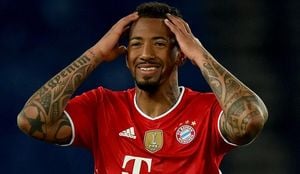The political tides are shifting as the Christian Democratic Union (CDU) gears up for the next Bundestag elections scheduled for February 23, 2025. The CDU has faced considerable challenges over the past few years, especially with the rise of the Social Democrats (SPD) and the Green Party. Amidst these challenges, party leaders are crafting strategies and public narratives aimed at rallying support and reclaiming lost influence.
Rolf Mützenich, the leader of the SPD parliamentary group, has called upon the Union to reconsider its stance against proposed legislation concerning child benefits and tax adjustments. He emphasized this opportunity, stating, "Die Union hat in der kommenden Woche die Chance, ihre parteitaktisch motivierte Blockadehaltung aufzugeben" (translated: The Union has the chance next week to abandon its party-tactically motivated blockade) as reported by Deutsche Presse-Agentur. This legislative change seeks to prevent subtle tax increases and mitigate the adverse effects of inflation on the income tax rate, effectively aiming for financial relief for families.
On another front, Philipp Amthor, the general secretary for the CDU in Mecklenburg-Vorpommern, expressed strong support for Ukraine during the party's regional assembly. He declared, "Wir stehen für Frieden und Solidarität mit den Angegriffenen und werden nicht für einen Siegfrieden der Aggressoren zur Verfügung stehen" (translated: We stand for peace and solidarity with those attacked and will not be available for the aggressors' victory). Amthor's remarks focused on positioning the CDU as proponents of international solidarity amid Russia's aggression, which he condemned as indicative of broader, unsettling changes to global order.
The party's narrative is also reflective of earlier years of governance, with Amthor describing the past three years under the 'Ampel' coalition as "drei verlorenen Jahren" (three lost years) for the German economy. Acknowledging mistakes made during the CDU's recent tenure, he rallied for addressing systemic issues exacerbated by time, particularly as the CDU prepares to set forth its agenda for voters.
Friedrich Merz, the Union's chancellor candidate, reiterated commitments to tax reduction and the preservation of current pension regulations. He firmly stated, "An der bestehenden gesetzlichen Regelung 1165 zum Renteneintrittsalter halten wir fest" (translated: We are committed to the existing legal regulation 1165 on the retirement age). Merz aims to ease the burden on working families knowing the importance of regaining public trust by reassuring them of financial policies focused on security and economic growth.
Secure mandates for Merz are of significant importance as he seeks to cement support for core policies. Hendrik Wüst, the Minister-President of North Rhine-Westphalia, stressed the need for political maneuvering post-Bundestag elections, calling for increased investment in defense, stating the necessity for "mindestens zwei Prozent des Bruttoinlandsprodukts in Verteidigung" (at least two percent of the gross domestic product on defense). This supporter network aims to return the CDU to its previous prosperity and trust among constituents.
The preparations are not without cautions; Markus Söder, the leader of the CSU, warned about the potential for "wohlfeilen Kompromissen" (cheap compromises) within the draft program. He declared, “Das Programm dient nicht dazu, es nach der Wahl neu zu schreiben” (translated: The program is not for rewriting after the election), underscoring the need for steadfast principles guiding the party's platform.
The backdrop of these political maneuvers is the detrimental outcome of past elections where the SPD ascended to dominate the Bundestag, winning all six direct mandates from Mecklenburg-Vorpommern, which the CDU had previously captured during the 2017 elections. This clear shift has prompted heightened urgency among CDU ranks as they strategize to regain ground.
The CDU's approach combines various elements: addressing economic issues, supporting international allies, and reinforcing domestic security. The narrative crafted by various leaders ranging from local representatives to national figures will play a significant role as the party heads toward the polls. With the spotlight on coalitions, how effectively the CDU can present its case and unite its fractured base will determine its success when voters head to the polls.
Moving forward, unity among party members and clear messaging will be instrumental as they navigate the political currents—particularly with SPD's increasing popularity and voter sentiment.



